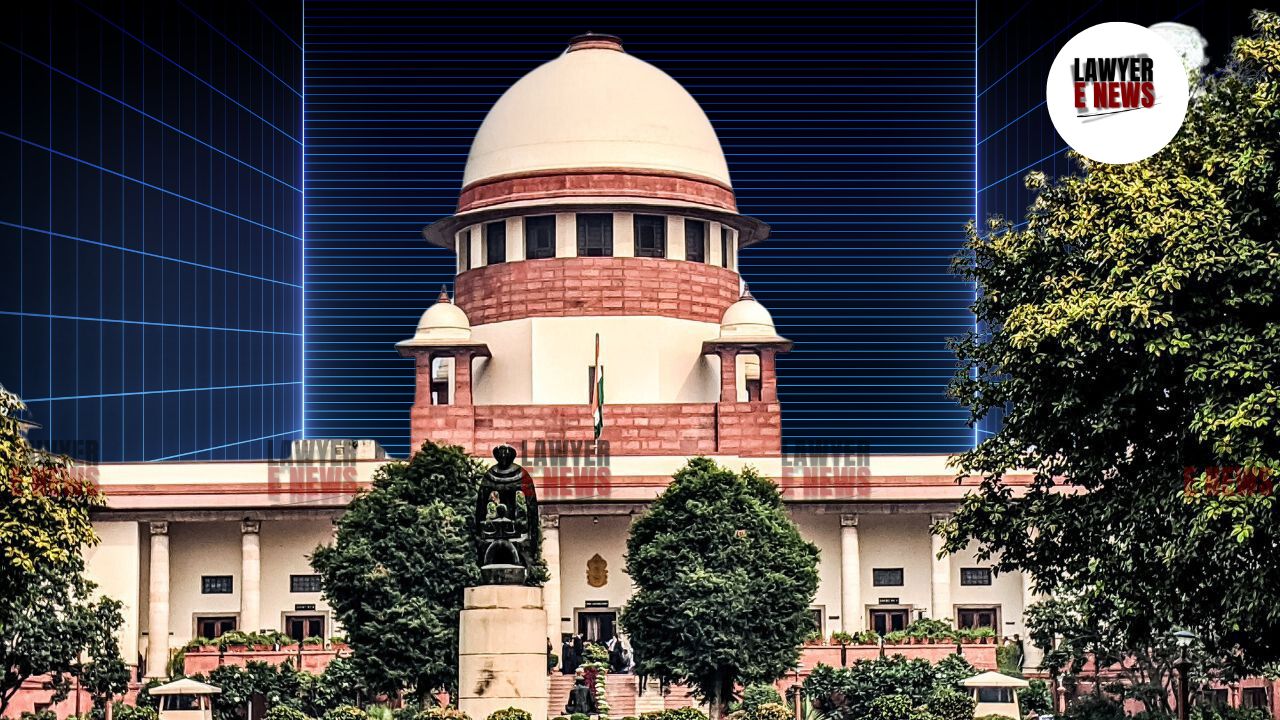-
by Admin
15 February 2026 5:35 AM



Supreme Court of India, in T. Thennarasu (A) Thangam Thennarasu v. State of Tamil Nadu & Ors., stayed a suo motu criminal revision by the Madras High Court that directed the restoration of a trial based on a closure report filed by the Directorate of Vigilance and Anti-Corruption (DVAC). The High Court's order to treat the final closure report as a supplementary report under Section 173(8) of the Criminal Procedure Code (CrPC) and proceed with framing charges was challenged by the petitioner. The Supreme Court observed that the High Court overstepped its authority by bypassing the role of the Special Judge under Section 227 CrPC.
The case originated from an anti-corruption investigation led by the DVAC against the petitioner, T. Thennarasu, and others. The investigation resulted in a closure report in October 2022, which favored the accused. The Special Court accepted the closure report, discharging the accused. However, the Madras High Court, exercising its suo motu powers under Section 397 CrPC, intervened, treating the closure report as a supplementary report under Section 173(8) CrPC. The High Court ordered that the trial be restored, directing the Special Court to frame charges against the accused.
The petitioner approached the Supreme Court, challenging the High Court’s order, arguing that the suo motu revision was improperly handled and undermined the role of the Special Judge under Section 227 CrPC, which mandates a judicial review of all available materials before deciding whether to frame charges or discharge the accused.
The key issue was whether the Madras High Court had appropriately exercised its suo motu revision powers to interfere with a closure report accepted by the Special Court. The petitioners contended that the High Court overstepped its powers by effectively directing the Special Court to frame charges, a function that exclusively rests with the Special Judge under Section 227 CrPC. The Supreme Court observed that the High Court had overreached by bypassing this established legal procedure.
The petitioner also highlighted that the suo motu criminal revision was improperly assigned to a Single Judge instead of a Division Bench, as per Rule XIV of the Madras High Court Rules. This rule mandates that cases involving MPs/MLAs must be assigned to a Division Bench. The petitioner argued that this procedural lapse further invalidated the High Court's decision. The Supreme Court acknowledged that this procedural aspect needed to be addressed, noting that the Chief Justice is the "Master of the Roster" and responsible for such assignments.
Under Section 227 CrPC, it is the Special Judge’s duty to consider all available materials, including investigation and closure reports, to determine whether there is sufficient ground to frame charges or discharge the accused. The petitioners argued that the High Court had undermined this process by directing the Special Court to frame charges, thereby overstepping its jurisdiction. The Supreme Court agreed, emphasizing that the role of the Special Judge was critical and must not be circumvented.
The petitioners relied on the Supreme Court's decision in Vinay Tyagi v. Irshad Ali (2013), which held that all investigation reports, including supplementary reports under Section 173(8) CrPC, must be considered cumulatively before any decision on framing charges. The Madras High Court's decision to treat the closure report as a supplementary report without considering prior investigation findings was criticized. The Supreme Court noted that the High Court had misapplied the law by not weighing the reports in their entirety, thereby violating the precedent set in Vinay Tyagi.
In its order, the Supreme Court, comprising Justices Hrishikesh Roy and Prashant Kumar Mishra, took a critical stance on the High Court's handling of the case. The Bench held that the High Court had improperly exercised its powers under Section 397 CrPC, essentially assuming the role of the Special Judge by directing the framing of charges.
"The learned Judge of the High Court has expropriated the power conferred by the CrPC on the Special Judge and decided that the Special Judge shall proceed to frame charge. The Court also ordered for closure of the discharge petitions filed by the accused." [Para 7]
Citing the Vinay Tyagi case, the Supreme Court reiterated that both the closure and earlier investigation reports must be considered together by the Special Judge under Section 227 CrPC, who is empowered to either discharge the accused or proceed with the trial.
Given these observations, the Supreme Court stayed the operation of the impugned High Court order, issuing notice to the State and granting four weeks for a response.
The Supreme Court's decision to stay the Madras High Court’s suo motu revision underscores the importance of following due process, particularly in cases involving complex anti-corruption investigations. The ruling reaffirms the role of the Special Judge under Section 227 CrPC and ensures that the High Court's revisionary powers under Section 397 CrPC do not overreach into trial court functions. The case will now proceed after further consideration by the Supreme Court.
Date of Decision: September 6, 2024
T. Thennarasu (A) Thangam Thennarasu v. State of Tamil Nadu & Ors
